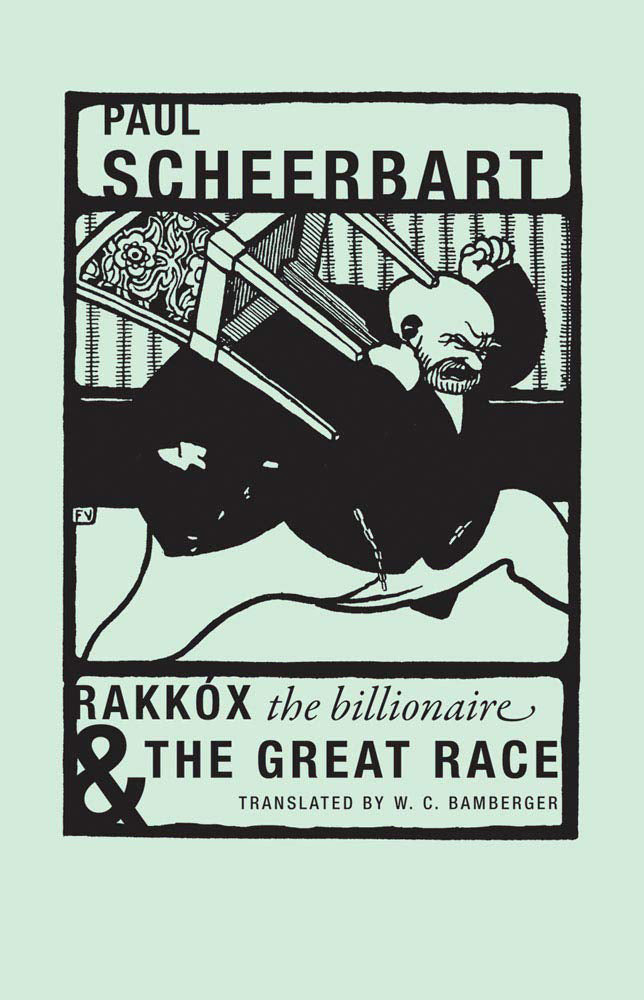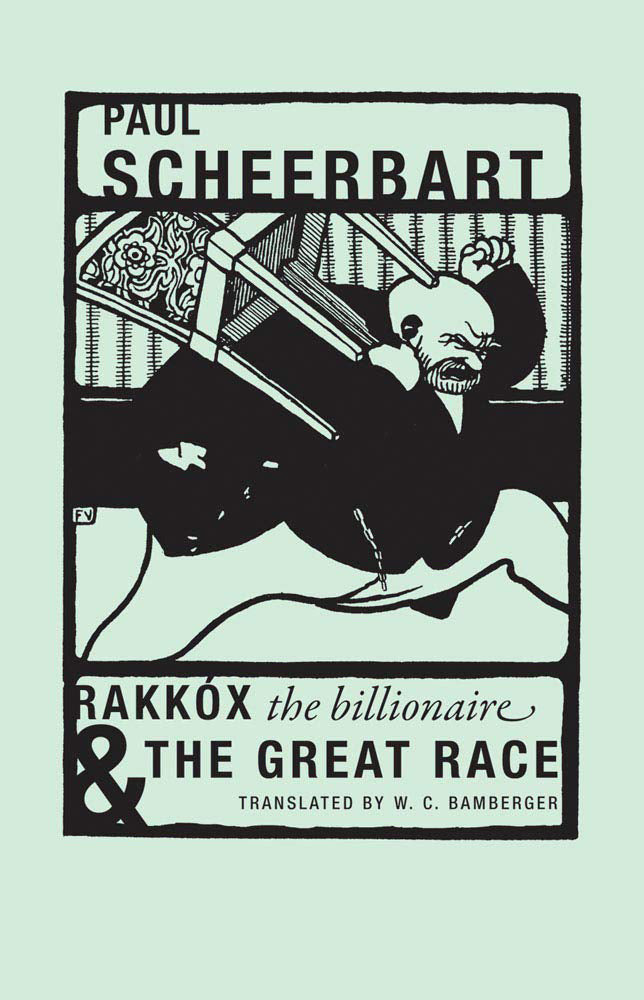Rakkóx the Billionaire & The Great Race
Rakkóx the Billionaire & The Great Race
Paul Scheerbart
Couldn't load pickup availability
Illustrations by Félix Vallotton and ornaments by Jossot / Translated, with an introduction, by W. C. Bamberger / October 2015 / 4.5 x 7, 128 pp. / 978-1-939663-12-2
Two novellas from the inventor of perpetual motion and godfather of German science fiction. Rakkóx the Billionaire (1901), a "Protean Novel," tells the tale of a multibillionaire who abandons his militaristic aspirations (and such Quixotic fantasies dreamed up by his Department of Invention as the utilization of herring in submarine warfare) in favor of a plan to convert a cliff into a work of architectural art. The Great Race (1900), a "Development Novel in Eight Different Stories," describes an intergalactic competition among worm spirits who wish to separate from their stars and achieve true autonomy in a ferocious race of winged sleds, cannon-airships, sky-high wheel-shaped vehicles and 100-mile-tall stilt machines, whose winners will be transformed into gods. Veering from humorous, aggressive slapstick to ethereal visions of cosmic philosophy, Scheerbart's fiction offers something of a cartoon space odyssey, and resembles that of no other writer, either of his time or our own.
Paul Scheerbart (1863–1915) was a novelist, playwright, poet, newspaper critic, draftsman, visionary, proponent of glass architecture, and would-be inventor of perpetual motion. Dubbed the “wise clown” by his contemporaries, he opposed the naturalism of his day with fantastical fables and interplanetary satires that were to influence Expressionist authors and the German Dada movement, and which helped found German science fiction. After suffering a nervous breakdown over the mounting carnage of World War I, Scheerbart starved to death in what was rumored to have been a protest against the war.
Press
“Scheerbart often reads like an apocalyptic mystic out of the Middle Ages who was somehow transported to the age of railroads and telegraphs.[…] Scheerbart is a mellow Marinetti; his faith in modern technology is not suffused with Futurist aggression, but with a dreamy aestheticism.”
—Adam Kirsch, The New York Review of Books
“This is Scheerbart at his most psychedelic, the lush intergalactic descriptions intercut with self-reflexivity (‘Do we think only in order to get intoxicated, or—do we get intoxicated only in order to think?’) and daffy, Neo-Kantian conversations on idealism and identity, all in the service of some sort of cosmic allegory.
—M. Kasper, Rain Taxi


